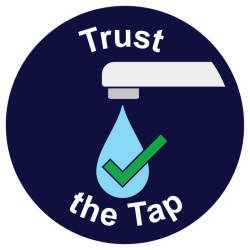
Trust the Tap

It has been 20 years since the Walkerton Tragedy. Undeniably, this considerable amount of time means that some young professionals in water supply were too young when the tragedy occurred and are unfamiliar with the event that occurred in 2000. The town of Walkerton suffered an E.coli breakout in their municipal drinking water resulting in the death of 7 people and 2300 people becoming very ill, many of which were left with chronic health issues such as liver damage. There were a multitude of factors that led to the tragedy, including; an improperly constructed well, a contaminated water source, inadequate training and education of public utilities staff, and insufficient reporting requirements to the Ministry of the Environment.
As a result of the tragedy, an independent Commission known as the Walkerton Inquiry was set up to examine the contamination of the water supply in Walkerton, Ontario, and to look into the future safety of the water supply in Ontario. A few of the key recommendations from the inquiry include:
- Plans to protect sources of drinking water should be developed on watershed level, should be approved and reviewed by the Ministry of the Environment, but be prepared by local committees with local consultation and be managed by conservation authorities.
- All water should be continuously monitored, with alarms and automatic shut-off systems if something goes wrong.
- Training courses for all water systems operators should be required and accessible.
Multi-Barrier Approach
In the Walkerton Inquiry Report, Justice O'Connor called for a multiple-barrier water management approach to prevent a similar tragedy from occurring again. Drinking water is best protected by taking an approach that uses multiple barriers to prevent contamination from affecting our drinking water. Known as the 'multi-barrier approach', it includes taking actions to prevent contamination of sources of our water, using adequate water treatment and distribution systems, water testing and training of water managers.

 Account Login
Account Login